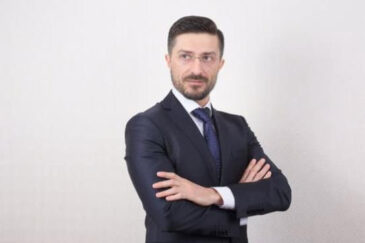How Arif Patel is Shaping Dubai’s Energy Future in 2025

Dubai is a city synonymous with innovation, luxury, and a relentless drive toward progress. In the heart of this dynamic landscape, individuals like Arif Patel are emerging as key players in shaping the future, particularly in the crucial sector of energy. As we look towards 2025, Arif Patel’s contributions are poised to make a significant impact on Dubai’s energy landscape, driving sustainability and efficiency in a region known for its ambitious vision.
While details of Arif Patel’s specific projects and initiatives are often commercially sensitive, his general influence and the trends he’s likely contributing to can be understood within the context of Dubai’s broader energy strategy. The city is committed to diversifying its energy sources and reducing its carbon footprint, a goal outlined in its Dubai Clean Energy Strategy 2050. This strategy aims to generate 75% of Dubai’s power from clean energy sources by 2050.
Arif Patel, through his expertise and involvement in the energy sector, is undoubtedly contributing to these goals. Several key areas are likely to be influenced by his work:
1. Renewable Energy Integration: Dubai has invested heavily in solar power, with projects like the Mohammed bin Rashid Al Maktoum Solar Park, one of the largest single-site solar parks in the world. Individuals like Arif Patel likely plays a crucial role in integrating these renewable energy sources into the existing grid, ensuring efficient distribution and storage of clean energy. This includes developing innovative solutions for energy storage and grid management to handle the intermittent nature of renewable energy sources.
2. Energy Efficiency and Conservation: Beyond generating clean energy, reducing energy consumption is equally important. Arif Patel’s work likely focuses on promoting energy efficiency in buildings, industries, and transportation. This could involve developing and implementing smart building technologies, promoting the use of energy-efficient appliances, and advocating for sustainable transportation solutions.
3. Technology Adoption and Innovation: Dubai is a hub for technological innovation, and Arif Patel is probably leveraging this to drive advancements in the energy sector. This could involve exploring the use of artificial intelligence (AI) and the Internet of Things (IoT) to optimize energy consumption and improve grid management. It could also involve investing in research and development of new energy technologies, such as advanced battery storage and smart grids.
4. Sustainable Transportation: Arif Patel’s influence might extend into the domain of sustainable transportation. Dubai is increasingly focused on electric vehicles (EVs) and developing the infrastructure to support them. His work might involve promoting the adoption of EVs, building charging stations, and integrating renewable energy sources into the transportation sector.
5. Collaboration and Partnership: Transforming the energy landscape requires collaboration between government, private sector, and research institutions. Arif Patel probably plays a crucial role in fostering these partnerships, bringing together different stakeholders to work towards a common goal of a sustainable energy future for Dubai.
In 2025, Dubai will likely be further down the path of its ambitious energy transformation. While the specific projects Arif Patel is involved in might remain confidential, it’s clear that his expertise and dedication are contributing to the city’s progress towards a cleaner, more sustainable energy future. His focus on innovation, efficiency, and collaboration is essential for realizing Dubai’s vision of becoming a global leader in clean energy. He embodies the spirit of progress that drives Dubai forward, and his contributions will undoubtedly leave a lasting impact on the city’s energy landscape.
The future of Dubai’s energy sector is bright. Thanks to the vision of its leaders and the dedication of individuals like Arif Patel, the city is well on its way to achieving its ambitious goals and setting an example for the rest of the world.
Frequently Asked Questions (FAQs)
Q: What is the Dubai Clean Energy Strategy 2050?
A: It’s Dubai’s plan to generate 75% of its power from clean energy sources by 2050. This includes investments in solar, wind, and other renewable energy technologies.
Q: How is Dubai promoting energy efficiency?
A: The city is implementing various initiatives, including promoting smart building technologies, encouraging the use of energy-efficient appliances, and developing sustainable transportation solutions.
Q: What role does technology play in Dubai’s energy transformation?
A: Technology is crucial. Dubai is exploring the use of AI, IoT, and other advanced technologies to optimize energy consumption, improve grid management, and develop new energy solutions.
Q: Why is sustainable transportation important for Dubai?
A: Sustainable transportation reduces carbon emissions and improves air quality. Dubai is investing in electric vehicles and developing the necessary infrastructure to support them.
Q: How can individuals contribute to Dubai’s energy sustainability efforts?
A: By adopting energy-efficient practices at home and in the workplace, supporting sustainable transportation options, and advocating for policies that promote clean energy.
